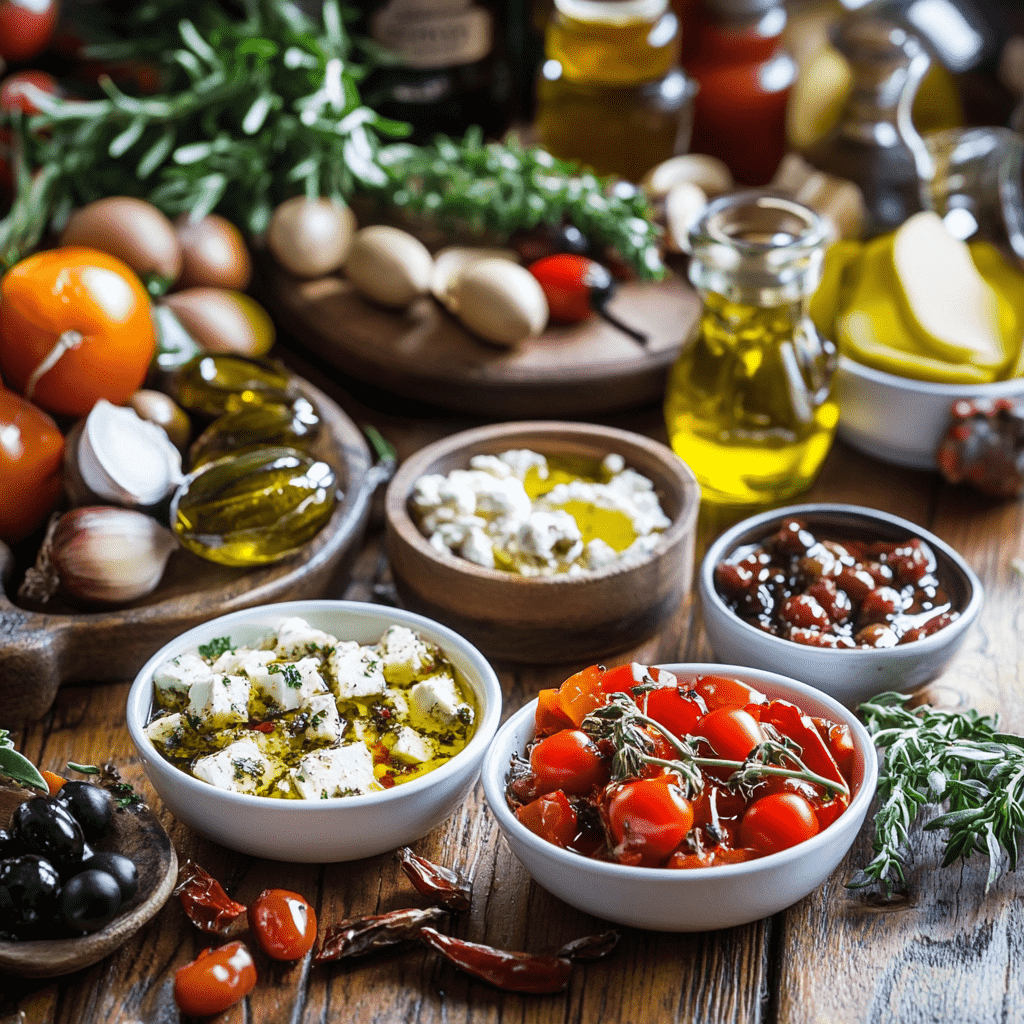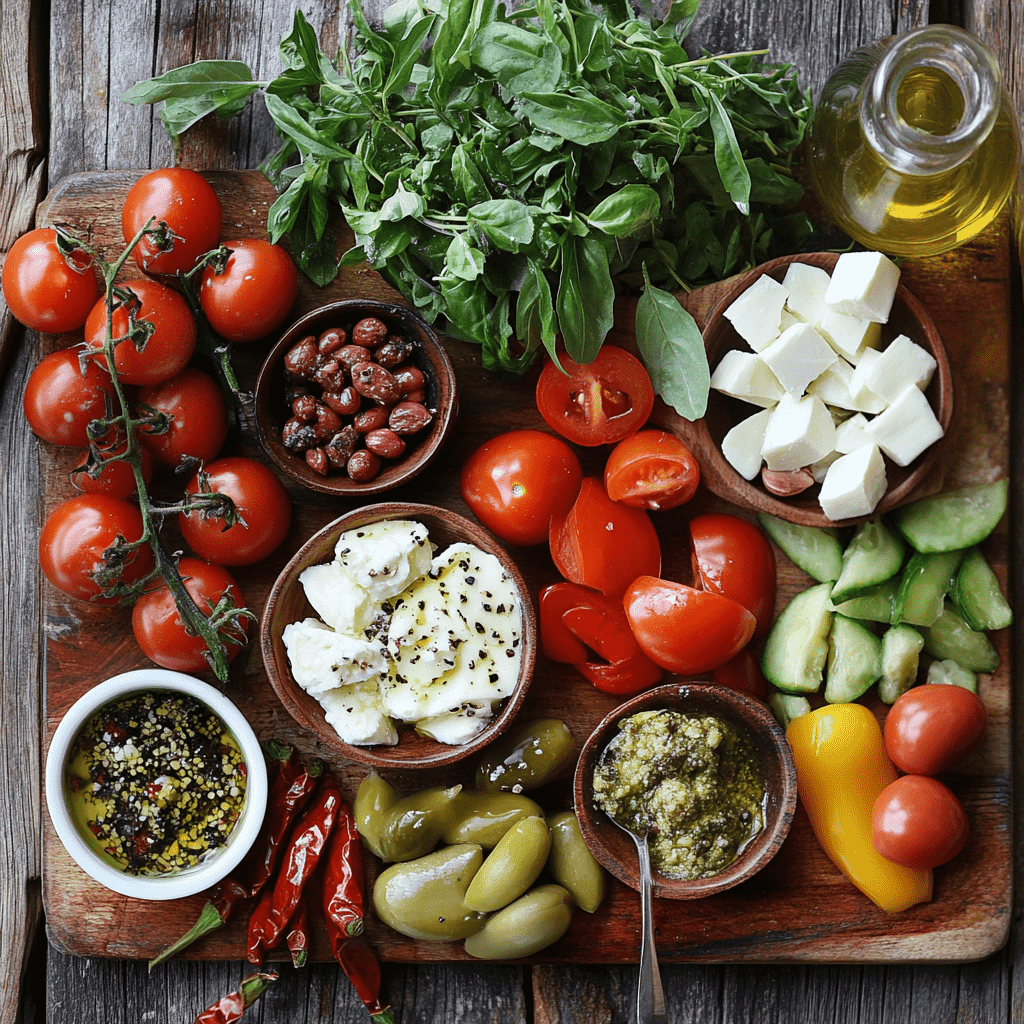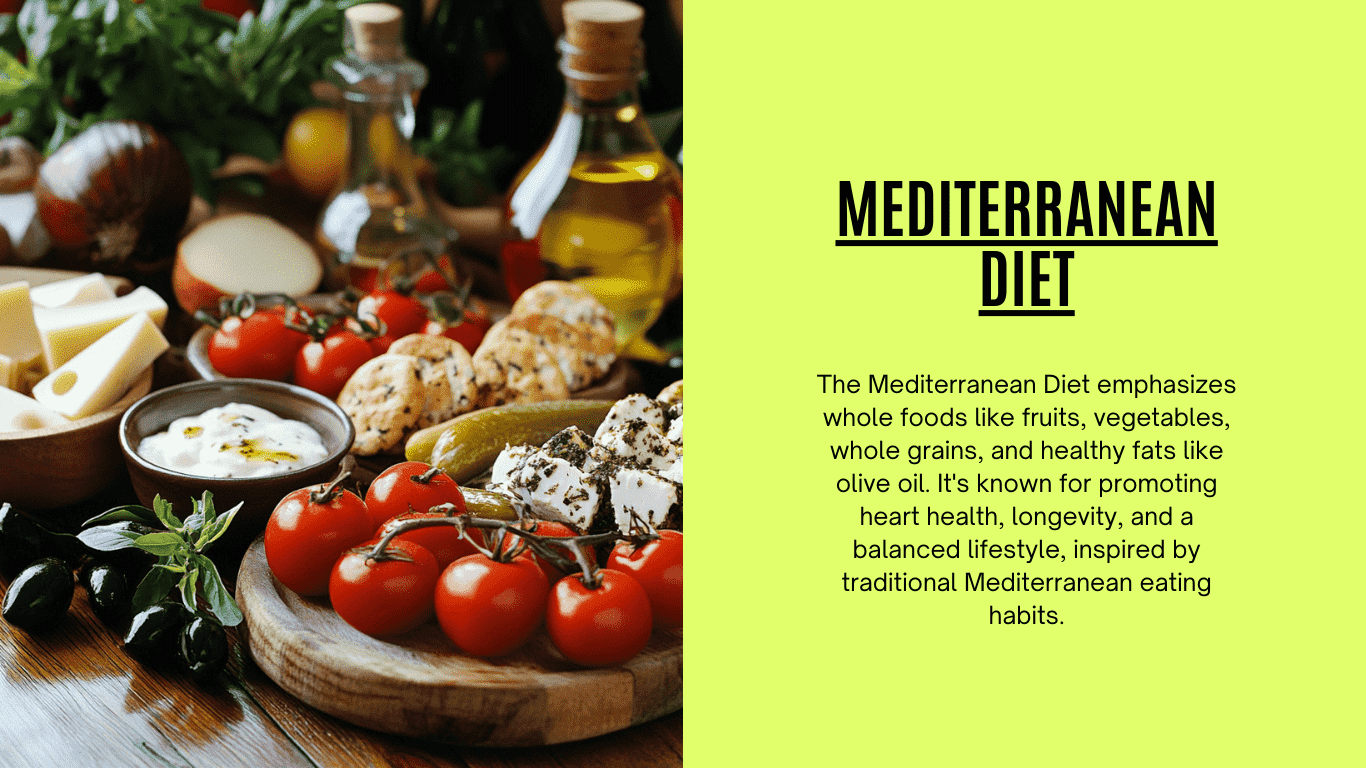The Mediterranean Diet : A Journey of Flavor and Health
Experience Both Flavor and Health in the Mediterranean Diet
The Mediterranean Diet, hailed as one of the eating patterns worldwide goes beyond being just a diet—it’s a way of life. It draws inspiration from the traditions of countries bordering the Mediterranean Sea known for their dishes diverse ingredients and numerous health benefits.
This diet has been around, for thousands of years. Is influenced by the eating habits of nations like Spain, Italy, Greece, and parts of North Africa. With an emphasis on ingredients and communal meals, it’s no surprise that this diet has stood the test of time.
Key Principles of the Mediterranean Diet
At its core, the Mediterranean Diet promotes a plant approach. Fresh fruits, vegetables, whole grains, nuts, and legumes take the stage in meals. Offer a wide range of essential nutrients and fiber. The focus is on consuming unprocessed foods rather than refined options.
While healthy fats—, from oil—are highly valued in this diet plan red meat plays a secondary role. Instead, fish and poultry are preferred sources of protein. Consumed in moderation.
Instead of relying on salt meals, the Mediterranean diet is enhanced with a variety of herbs and spices offering both flavor and health benefits.
Diet Pyramid
The Mediterranean Diet Pyramid provides a representation of the diet’s structure. The foundation of the pyramid consists of foods that should be consumed often such as vegetables, fruits, grains, and olive oil. As you move up the pyramid, food groups like dairy, fish, and poultry appear in amounts. At the top are meats and sweets which should be enjoyed sparingly.
This pyramid serves as a guide for individuals to make choices about their daily, weekly, and occasional food intake. It aims to ensure nutritious meals while simplifying decisions.
The health benefits associated with the Mediterranean Diet are extensive and well-documented. One notable advantage is its impact on health. Numerous studies have shown that people following this diet have a risk of heart disease due to its emphasis, on fats, whole grains, and antioxidant-rich foods.
However, its benefits extend beyond heart health alone. The Mediterranean Diet does not help with weight management. Also reduces the risk of type 2 diabetes and may provide protection, against certain types of cancer. Its potential positive effects on brain health in lowering the chances of diseases further highlight its importance.

The Importance of Olive Oil
Olive oil often referred to as ” gold ” holds a place in the Mediterranean Diet. This oil is extracted from olives. It has been a staple in the diet of the region for thousands of years. Its distinct and flavorful taste enhances dishes. It is its health benefits that truly make it stand out. Packed with antioxidants and monounsaturated fats olive oil is associated with promoting heart health and reducing inflammation.
When using olive oil quality is key. Extra virgin olive oil, obtained from the pressing of olives retains the amount of nutrients. To preserve its flavor and nutritional advantages correctly storing olive oil away from light and heat is essential.
Seafood in the Mediterranean Diet
The glistening waters of the Mediterranean Sea offer an abundance of fish and seafood that play a role, in the diet followed by residents.
Fish, types, like salmon, mackerel, and sardines are known for being high in omega-3 fatty acids. These healthy fats have gained recognition for their impact on heart health and their ability to reduce inflammation.
Following the Mediterranean Diet involves not consuming seafood twice a week for its health benefits. Also prioritizing sustainable fishing practices. This ensures the preservation of marine ecosystems. Promotes dietary choices.
Wine and Meals
In Mediterranean meals wine is often enjoyed in moderation as more than just a drink – it’s an integral part of the cultural and social experience. Research has indicated that moderate wine consumption can provide advantages due to its polyphenols and antioxidants.
However, it’s essential to maintain a perspective when it comes to wine. While it can be included as part of a diet when consumed responsibly excessive drinking can have effects. It’s always advisable to consult with a healthcare professional regarding alcohol consumption for individuals with health concerns or conditions.

Dining Experience
The Mediterranean dining experience extends beyond nourishment; it is also, about coming socially and enjoying food in a pleasurable way.
Meals are often enjoyed at a pace. Sharing with loved ones creates a sense of connection that goes beyond mere consumption. This focus, on dining fosters eating, which brings numerous benefits.
By savoring the flavors, textures, and aromas of food people tend to eat and feel satisfied with smaller portions. This balance between nourishment and enjoyment is a defining aspect of the Mediterranean Diet.
Meal Plan
If you’re interested in adopting the Mediterranean Diet having a sample meal plan can be extremely helpful. A typical day might begin with Greek yogurt topped with fruits and nuts for breakfast. Lunch could consist of a salad drizzled with olive oil featuring tomatoes, cucumbers, feta cheese, and olives. For dinner, you might enjoy grilled fish accompanied by vegetables and a side of quinoa or couscous.
These meal plans provide an overview of the diet’s diversity and delicious flavors. It’s important to maintain portion control to ensure you get all the nutrients without overindulging. Additionally preparing meals, at home using ingredients elevates the overall dietary experience.
Incorporating Exercise into Daily Life
While diet plays a role, in the Mediterranean lifestyle physical activity is just as important. In the Mediterranean way of life people naturally engaged in forms of movement whether it was walking to the market tending to gardens or doing manual labor. This seamless integration of activity promotes well-being and complements the benefits of the diet.
In today’s world, there are ways to incorporate movement into our routines. From taking walks and participating in sports to indulging in dance or practicing yoga the key is to find activities that we enjoy and can sustain over time. By making physical well-being a part of our lifestyle we enhance our health and vitality.
Sustainability and Caring for the Environment
The Mediterranean Diet naturally aligns with principles of sustainability by emphasizing locally sourced produce. Traditional farming methods in this region prioritize biodiversity and soil health. When we choose foods that are grown locally and harvested during their seasons we reduce the impact associated with transportation and storage.
Additionally adopting a plant approach in this diet contributes to friendliness. Plant-based foods generally require resources. It has a smaller carbon footprint compared to meat production. Therefore embracing the Mediterranean Diet not only benefits our health but also demonstrates our commitment, to being environmentally responsible.

Misunderstandings, about the Mediterranean Diet
Like with diets, there are some misconceptions surrounding the Mediterranean Diet. Some people mistakenly believe that it’s all about consuming olive oil and fish while others think it allows wine intake. In reality, this diet emphasizes balance, variety, and moderation. Although olive oil and fish play roles in this eating pattern they are just part of a dietary approach.
Another misconception is that the diet is the same throughout the Mediterranean region. The truth is that there are differences that reflect produce, culture, and traditions. However, what unifies these variations is the principle of consuming whole foods and maintaining a balanced approach to eating.
Tips for Transitioning to the Mediterranean Diet
Switching to the Mediterranean Diet doesn’t mean changing your eating habits. It’s all about making adjustments and informed decisions. Start by incorporating fruits and vegetables into your meals opting for grains instead of refined ones and using olive oil as your primary source of fat. As you become more comfortable with this way of eating you can explore a range of Mediterranean ingredients and dishes.
Having a stocked pantry can also help make your transition to this diet smoother. Staples such as olives, capers, lentils chickpeas and various herbs can be versatile additions, to your recipes.
Investing in high-quality kitchen utensils, such, as a chef’s knife and a sturdy skillet can further ignite your passion for Mediterranean cuisine.
Conclusion
The Mediterranean Diet encompasses a blend of flavors, ingredients, and customs that provide a comprehensive approach to overall health and well-being. By emphasizing the consumption of foods, and meals and maintaining a balanced lifestyle it offers both physical vitality and culinary pleasure.
As one immerses themselves in the realm of Mediterranean cooking and dining they will discover that it goes beyond value or calorie count. It represents a way of life that cherishes food, and community connections and finds joy, in the pleasures of existence.
- What are the top 10 foods on a Mediterranean diet?
- Olive oil
- Fresh fruits
- Vegetables, especially leafy greens
- Whole grains
- Nuts and seeds
- Legumes
- Fish, particularly fatty fish like salmon and sardines
- Herbs and spices
- Moderate amounts of dairy, mainly cheese and yogurt
- Red wine (in moderation)
- What is a typical Mediterranean breakfast?
- A typical Mediterranean breakfast might include whole grain bread or cereals, fresh fruits, Greek yogurt or cheese, and nuts. It often features olives or olive oil and sometimes includes eggs. The focus is on fresh, minimally processed foods.
- What are the 9 components of the Mediterranean diet?
- High consumption of fruits and vegetables
- High consumption of whole grains
- High consumption of legumes
- High consumption of nuts and seeds
- Olive oil as the primary fat source
- Moderate consumption of fish and poultry
- Low consumption of red meat
- Moderate consumption of dairy products
- Moderate wine consumption, typically red wine
- What is a typical lunch in the Mediterranean?
- A typical lunch in the Mediterranean could include a mix of salads with fresh vegetables, whole grains like quinoa or brown rice, a portion of lean protein such as fish or chicken, and legumes. Olive oil is commonly used in dressings, and meals may be accompanied by a small glass of wine.
- Are eggs allowed on Mediterranean diet?
- Yes, eggs are allowed on the Mediterranean diet. They are considered a good source of protein and nutrients, although they are typically consumed in moderation.
- Is Rice allowed on Mediterranean diet?
- Yes, rice is allowed on the Mediterranean diet. Whole grain varieties, such as brown rice, are preferred for their higher nutritional content compared to white rice.
References
- https://www.health.harvard.edu/blog/adopt-a-mediterranean-diet-now-for-better-health-later-201311066846
- https://www.mayoclinic.org/healthy-lifestyle/nutrition-and-healthy-eating/in-depth/mediterranean-diet/art-20047801

